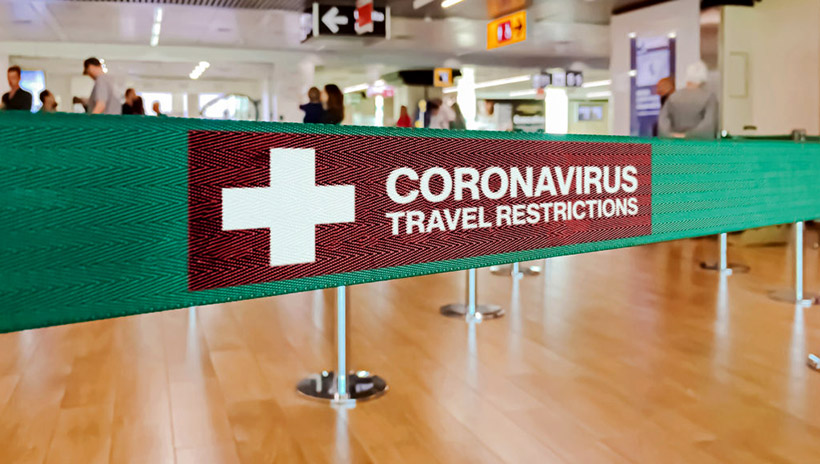Publisher's note: This post appears here courtesy of the Carolina Journal, and written by Jordan Roberts.

Every level of government has shifted its focus to respond to the spreading coronavirus. Recently, the country watched as both chambers of Congress voted to pass the massive relief package known as the
Coronavirus Aid, Relief, and Economic Security (CARES) Act.
The CARES Act was the third coronavirus response bill passed by Congress. The
Coronavirus Preparedness Act appropriated $8.3 billion in aid to the Department of Health and Human Services, the Centers for Disease Control, National Institutes of Health, and the Public Health and Social Services Emergency Fund. The second bill, the
Families First Coronavirus Response Act, allocated coronavirus response money to other federal agencies, provided funding for providers that administer tests to the uninsured, and mandated coverage of testing for private insurance plans, Medicare, and Medicaid without any cost sharing.
The massive $2 trillion price tag makes the CARES Act the largest relief package ever approved by Congress. Those who paid attention to the legislative debate during the passage of this bill have heard about some of the
controversies over funding for the Kennedy Center and concerns about transparency and accountability. The health care provisions are no exception.
Hospitals and health care providers
As we have seen in places such as New York and New Orleans, hospitals will oversee a majority of the coronavirus response. The CARES Act allocates $100 billion for hospitals and other health care providers. But
some confusion exists about when and how the federal government will distribute the money.
The Trump Administration
recently announced a portion of this $100 billion hospital fund would be used to reimburse hospitals at Medicare rates for care provided to those who are uninsured and need treatment for COVID-19.
The Secretary of the Department of Health and Human Services Alex Azar will have discretion over these funds, and he must report on the use of the funds to Congress every 60 days. A such, we may have limited information until the delivery of his initial report.
Hospitals also will receive additional dollars from the Centers for Medicare and Medicaid Services. The Medicaid matching rate, referred to as the FMAP, will be increased temporarily to help offset the costs of treatment. As my colleague Joe Coletti recently
noted, North Carolina's Medicaid matching rate will increase from 67.4% to 73.4%. Hospitals may apply for an
advanced payment from Medicare to help maintain cash flows.
The availability of personal protective equipment continues to be a challenge. State requests for equipment have drained the Strategic National Stockpile. While this is a point of significant concern, the law sets aside $16 billion for personal protective equipment and ventilators.
The CARES Act also provides $1.3 billion for community health centers. North Carolina's 39
community health center organizations will be eligible to receive funds from this appropriation. The law also extends mandatory funding at current levels for community health centers through the end of November.
The CARES Act provides $500 billion for loans to large corporations and $389 billion for loans to small businesses. It's unclear now whether hospitals and other health care providers qualify for these loans, but some
believe they do. If the health care industry gains access to these programs, the manufacturing, commercial, retail, and services sectors will likely object, citing the billions already set aside for the health care sector in this and the other two coronavirus response bills.
Testing
Many insurers have voluntarily announced coverage of testing and treatments. After the passage of the Families First Coronavirus Response Act, the Trump administration announced private insurers, Medicare, and Medicaid, were required to cover coronavirus tests through FDA-approved test kits without cost-sharing, that is, without deductibles, co-payments and co-insurance. With such a high demand for testing, the CARES Act
expands coverage for tests in private plans without cost-sharing to virtually all entities that provide them. The law also directs insurers to provide coverage of a potential coronavirus vaccine without cost-sharing.
The CARES Act provides guidance on the rate insurers should pay to providers for coronavirus testing, although this provision may not work as intended. Katie Keith of Health Affairs
described how, in the absence of a contracted insurance price, out-of-network labs might charge whatever they want by naming a cash price for testing. Subsequent legislation may need to address this defect in the law.
Telehealth
No tool has been used more by providers and patients to mitigate the spread of the disease than telehealth technology. Given that direct contact is the means of transmission, providing consultation and care via telecommunications makes sense. Many governors have waived telehealth regulations to expand access to providers. Those waivers should remain in place indefinitely.
The CARES Act builds on the current deregulatory action taking place around the country in several ways. First, the law allows high-deductible health plans with health savings accounts to cover telehealth services. Second, the law allows Medicare patients to access a provider via telemedicine without having seen them in person beforehand. Also, the law
expands the parameters of telehealth to include additional providers and settings such as residences. Third, the law increases telemedicine use for federally qualified health centers, home dialysis, hospice care, home health services.
The CARES Act is an unprecedented law for an unprecedented time. To contain the spread of this virus, elected officials have shut down major sectors of our economy. We have asked our hospitals and health care workers to defend us against a deadly virus. Congress has responded to the events by providing funding streams directly to hospitals, businesses, and individuals to try to mitigate the economic damage from this outbreak. The next challenge is ensuring federal dollars get into the hands of those impacted by the virus and that it is used efficiently and effectively.
Jordan Roberts is the health care policy analyst for the John Locke Foundation.

